4 timeless inventions of the ancient people
Things seemingly newly invented by modern humans such as concrete, dye, nanotubes . were actually created and used by ancient people thousands of years ago. In which, there are inventions even though the science and technology have been very developed but we still cannot explain.
Roman concrete
Thousands of years ago, the ancient Romans used concrete to build many buildings and monuments in Rome. Over 2000 years with so many impacts of the environment and people, these buildings still exist today.

The Colosseum in Rome, Italy.(Photo: Diliff / wikimedia).
The secret ingredient is in the type of concrete that ancient Romans used to build many works such as the Pantheon temple and the Colosseum arena, volcanic sand and marble (calcium hydroxide). This mixture helps create a crystal network with good fracture resistance, helping Roman concrete to have superior durability compared to modern concrete.
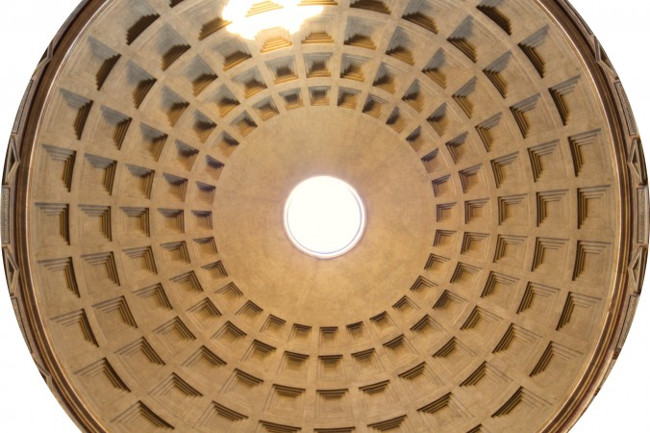
The Pantheon Dome - made entirely of concrete.(Photo: MatthiasKabel / Wikimedia).
Dye
In 1856, William Perkin invented the first organic dye when he accidentally discovered the mauveine purple compound while making quinine antimalarial drugs.
However, according to scientists, the Egyptians may have created a synthetic dye in 3000 BC to create yeast used in ceramics.
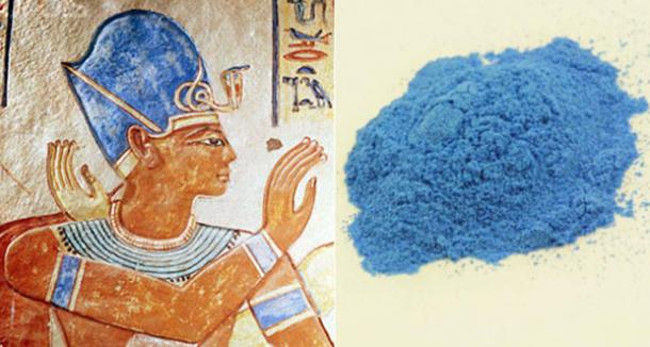
Egyptian dye.
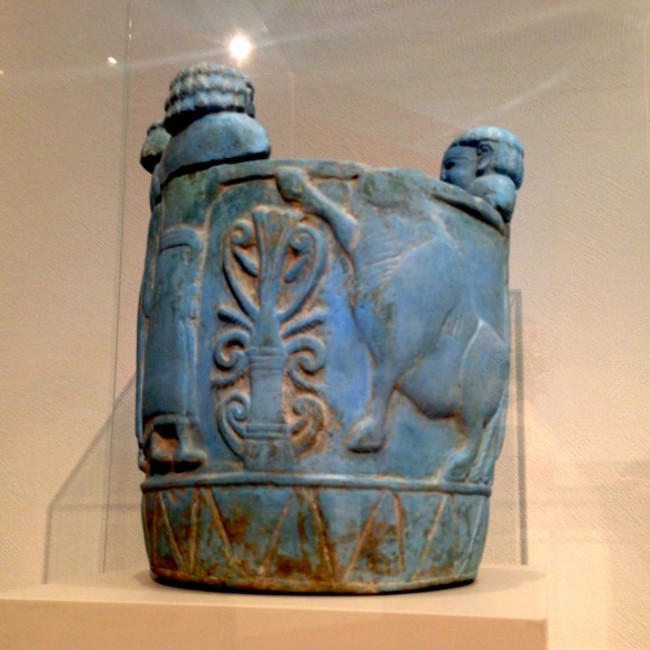
A small blue box of ancient Egyptians.The box is currently on display at the Altes museum in Berlin, Germany.(Photo: Bairuilong / wikimedia).
By heating a mixture of sand, ash, calcium carbonate (probably extracted from shells, snails .), and a copper-containing ore at temperatures above 800 ° C, the ancient Egyptians created copper calcium silicate (CaCuSi4O10 or CaOCuO (SiO2) 4) is blue.
Chromium technology
In 1920, George Sargent was said to have invented today's chrome technology.
But in 1970, when excavating the famous terracotta army in the tomb of Qin Shihuang, archaeologists discovered sharp swords that were covered with thin chrome oxide. In particular, after two millennia, the blades still do not rust. Chinese people said that their first dynasty blacksmiths coated a thin layer of chromium oxide on their weapons to protect them from corrosion.
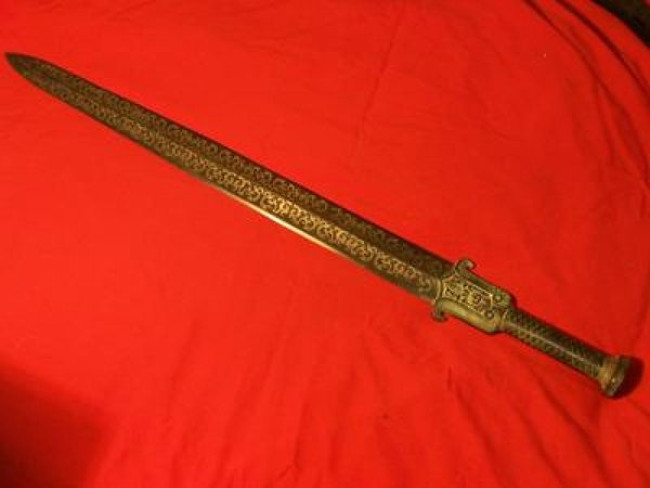 The bronze 2000-year-old sword in the tomb of Qin Shihuang is still sharp
The bronze 2000-year-old sword in the tomb of Qin Shihuang is still sharp
Thus, chrome technology has appeared since the Qin and Chinese ancient times. Not only that, the ancient technology used is also superior to the most modern technology today.
Nanotubes fabricate Damascus steel
1991 marked the birth of carbon nanotubes, a material that would later be considered a "wonder of the nano world".
Carbon nanotubes are an allotropic form of carbon element and they are made up of many cylinders with walls just one atom thick. This special crystal structure makes carbon nanotubes have many special properties: 6 times lighter than steel but 100 times stronger than steel, has good elasticity, and can conduct electricity well under this condition. Can just become a semiconductor in another condition .
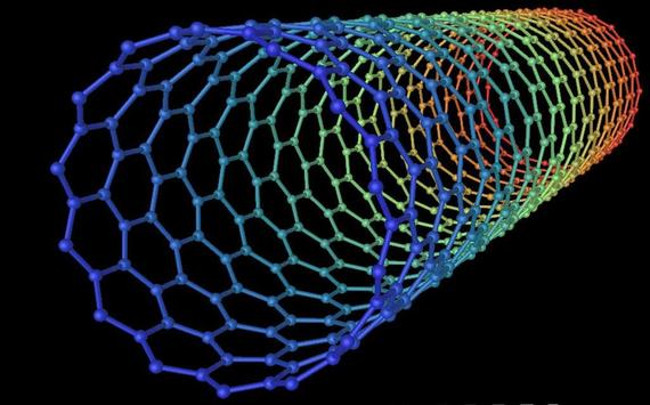
Carbon nanotubes.(Photo: Nationalgeographic).
However, in 2006, researchers found that, hundreds of years ago, people in Damascus (the capital of Syria) knew how to use carbon nanotubes in steel making. As a result, they have created very beautiful blades, which are covered in swirling metal veins with superior durability and sharpness.
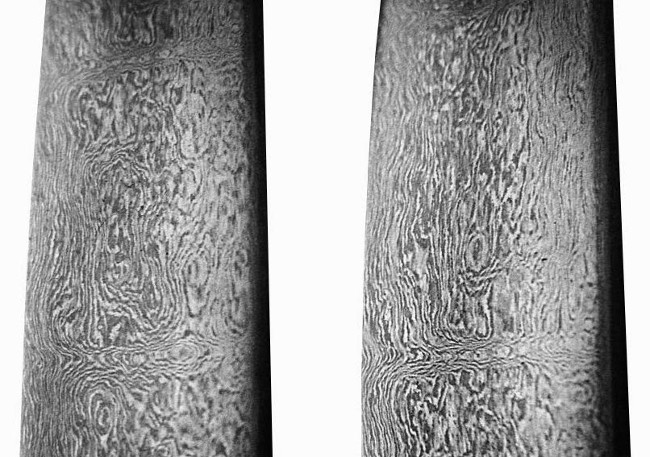
Damascus steel sword was forged by Persians in the 18th century (Photo: Rahil Alipour Ata Abadi / wikimedia).
And with the current scientific level, we know exactly the composition of Damascus steel , as well as the modern metallurgists have not been able to successfully forge this type of steel.
You should read it
- ★ How to clean the body of ancient Egypt
- ★ Why is Roman concrete 2,000 years ago more sustainable than modern concrete?
- ★ Thomas Edison's 10 little-known and denied inventions
- ★ Find out why weapons Terracotta army of Qin Shi Huang still shiny and sharp after more than 2000 years
- ★ How to keep steel items shiny